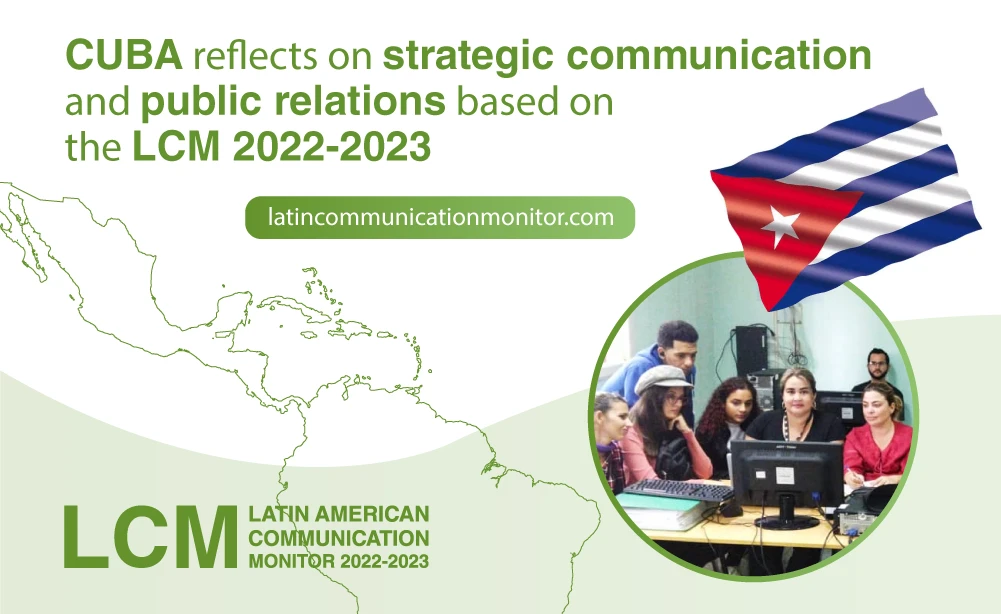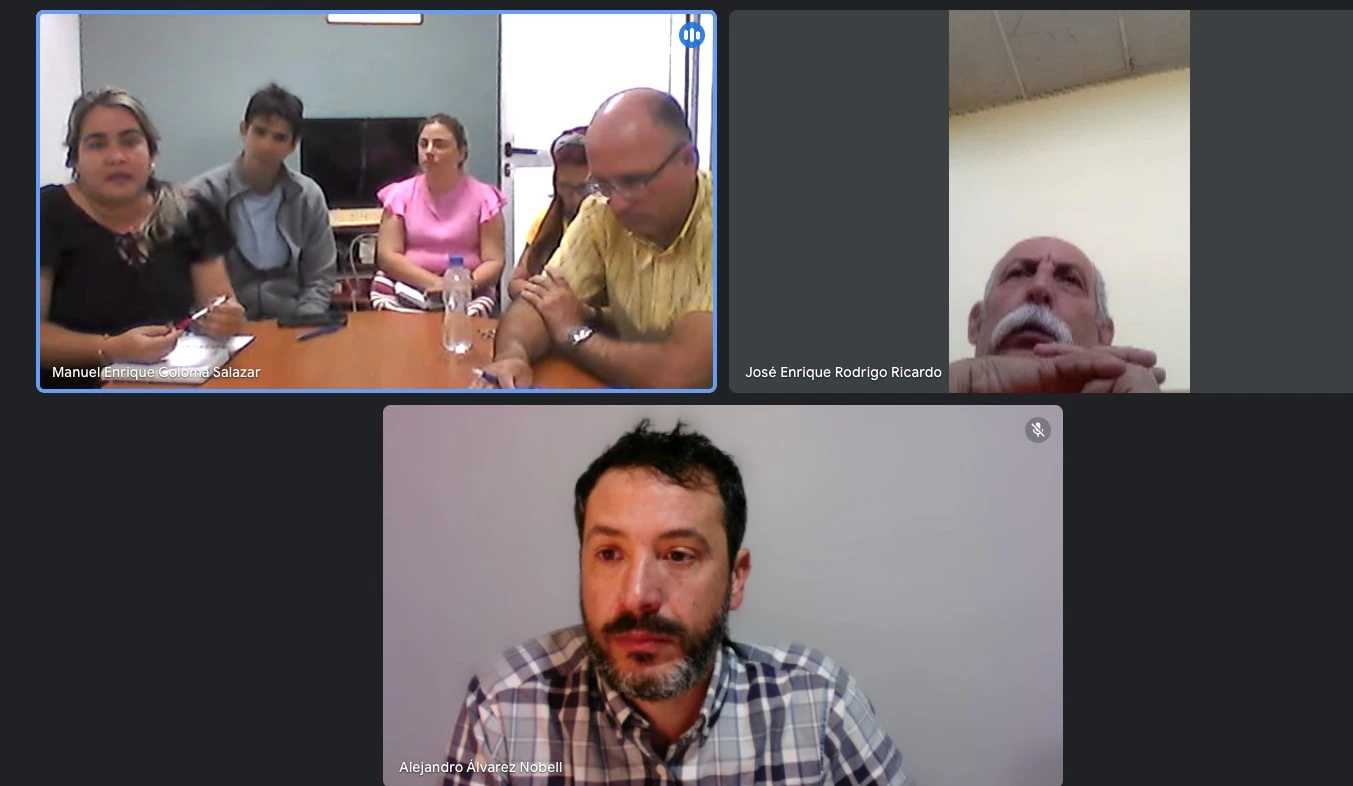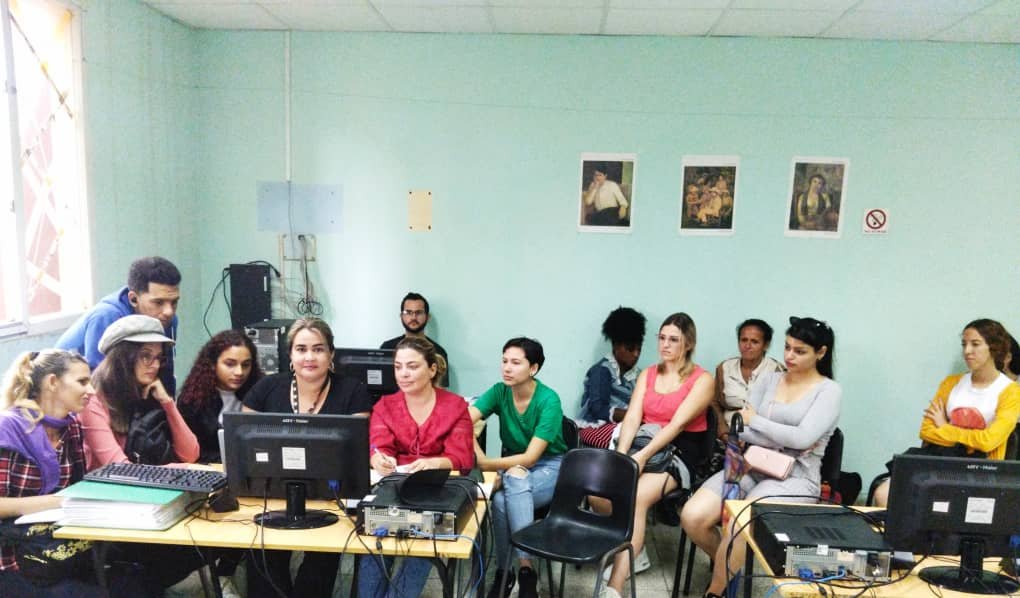CUBA reflects on strategic communication and public relations based on the LCM 2022-2023
For the first time, the largest study on the profession in the region is being presented in CUBA. The University of Holguín has hosted two events with fifty professionals, faculty, and students

During February 2024, the University of Holguín in Cuba became the epicenter of transformative analysis and dialogue about the future of strategic communication and public relations on the island, based on the exclusive presentation for the first time of the results of the Latin American Communication Monitor.
In an effort to expand collaboration in the region and explore new frontiers in academic and research fields, the University of Holguín organized two key events.
The first, held on February 9, brought together prominent representatives of the University alongside Dr. Alejandro Álvarez Nobell, one of the directors of the LCM. In this meeting, the relevance and trajectory of the study were discussed, outlining a roadmap that includes future collaborations to present results, achieve greater participation of professionals in the survey, regional analysis, and also mobility and exchange initiatives. Among those who participated were Dr. Manuel Coloma Salazar and Ms. Rosabel González, from the area of International Relations Management; Dr. Julio Rodríguez Peña, Vice Dean of Research and Postgraduate Studies at the Faculty of Communication and Letters; Mr. José Rodrigo Ricardo, Director of the Center for Organizational Management Studies; Ms. Bárbara de los Milagros Sicilia Rojas, Head of the Department of Social Communication; and Ms. Roxana Sera Rodríguez, Head of the Territorial Project Management of Digital Communication and the new National contact for the island for LCM.

The second event, held on February 20th, opened its doors to students, researchers, and professionals and featured the participation of Yaquelin Cruz Palacios, Dean of the Faculty of Communication and Letters; Alejandro Álvarez Nobell and Andreia Athaydes, Professor and Researcher from the Federal University of Brazil. Together, they explored current trends in the field of communication, providing a panoramic and thought-provoking insight into the current and potential landscape of the discipline.

Both meetings not only served to discuss the results of the LCM 2022-2023 but also catalyzed new opportunities for collaboration and joint development in the region. The fluid dialogue and the search for synergies with academic institutions reflect a shared commitment to advancing towards a more promising future in the field of strategic communication and public relations.
These events mark only the beginning of an exciting journey towards innovation and collaborative learning in strategic communication and public relations between Cuba and the rest of Latin America. As we delve into an increasingly interdependent world, the importance of these academic exchanges and joint projects will continue to grow in pursuit of a common agenda and the interests and needs of the region.
Join the conversation and be part of the regeneration!
View the Full Report here
The LCM is part of the Global Communication Monitor, driven by the European Public Relations Education and Research Association (EUPRERA), which, in 16 years, has surveyed approximately 50,000 professionals in more than 80 countries. In addition to the Latin American region, the study is complemented by chapters in Europe (ECM), Asia-Pacific (APCM), and North America (NACM). The 2022-2023 edition is sponsored by the Central American Bank for Economic Integration (BCIE), the Institute of Public Relations (IPR), the University of Oregon (United States), and the Creative Campus of the Latin University of Costa Rica. Additionally, it receives academic support from the Regeneration, Well-being, and Positive Communication Research Group ReBiCom UMA Network at the University of Malaga (Spain); the Advanced Communication Studies Group at the University Rey Juan Carlos (Spain); the Research Group in Communication Studies (GRECO) at the University of Medellin (Colombia), and the Latin American Network for Research in Organizational Communication (RedLAco).


















